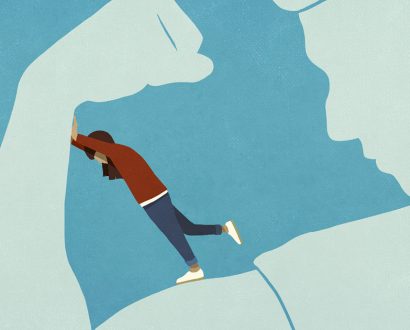The job of CEO can at times be a tough one. Faced with many, varied and at times complex challenges, it’s unsurprising CEOs experience burnout as often as they do.
For many of the CEOs I work with, what they’ve learned through study and growing up through the management ranks, isn’t nearly enough to prepare them for the challenges that come with the top job.
Great leaders bring wisdom to their role, reflected in a strength of emotional and intellectual capabilities, typically hard-earned through life experience. We all have the opportunity to learn from experience and become not only a better person, but also a leader of other people.
Among the greatest examples of leaders who have been profoundly influenced by their life experiences is, of course, Nelson Mandela. It’s easy to see not only how his experiences but also his responses to them shaped the world leader he became.
Great wisdom is reflected in his comments about the power in letting go of resentment. “As I walked out the door toward the gate that would lead to my freedom, I knew if I didn’t leave my bitterness and hatred behind, I’d still be in prison.”
Each of the roles we play in life present the opportunity to learn about leadership. It’s up to us to take from our experiences the benefits that are offered.
Look for the lessons learned in everyday life, about yourself and how to influence the success of others. It certainly doesn’t take oppression or a stint in jail, such as Mandela experienced, to learn a great deal from what life throws at you.
Reflect for a moment on what life has taught you about being a great CEO. Whether as a spouse, parent, child, sibling, aunt, uncle or friend, no doubt your relationships have taught you a lot about people and leadership.
Reflect, for example, on situations or challenges that have allowed you to develop greater empathy, learn to communicate more effectively, or better resolve conflict.
Understand how knowledge gained or skills developed outside work can help you to become an even better leader. There is no question that many of the lessons I have learned through both karate and family life have played a defining role in the type of leader I am today.
Having children, for example, helped me to understand why a ‘command and control’ approach to leadership is pointless. Most three-year olds simply don’t respond to ‘do it because I say so’. The truth is adults aren’t any different. No matter how much you demand compliance, unless people want to do something, they’re unlikely to do it well.
Through karate I learned the invaluable lesson that the strength of someone’s spirit is entirely dependent upon the beliefs they hold; about themselves, their circumstances, the future and their ability to influence that future.
People who believe in their ability to survive when their life is under threat are more likely to choose to fight. At work, when we believe in our ability to succeed, we are more likely to step forward with confidence and meet challenges head-on.
As you go about doing what you do, reflect on the lessons your life experiences are providing. If you have children, consider what they have taught you about tolerance, patience, courage or imagination.
What have your partnerships and friendships taught you that will help you to have better relationships and make more effective decisions at work? What have you learned even just pursuing your hobbies that are valuable to your role as CEO?







